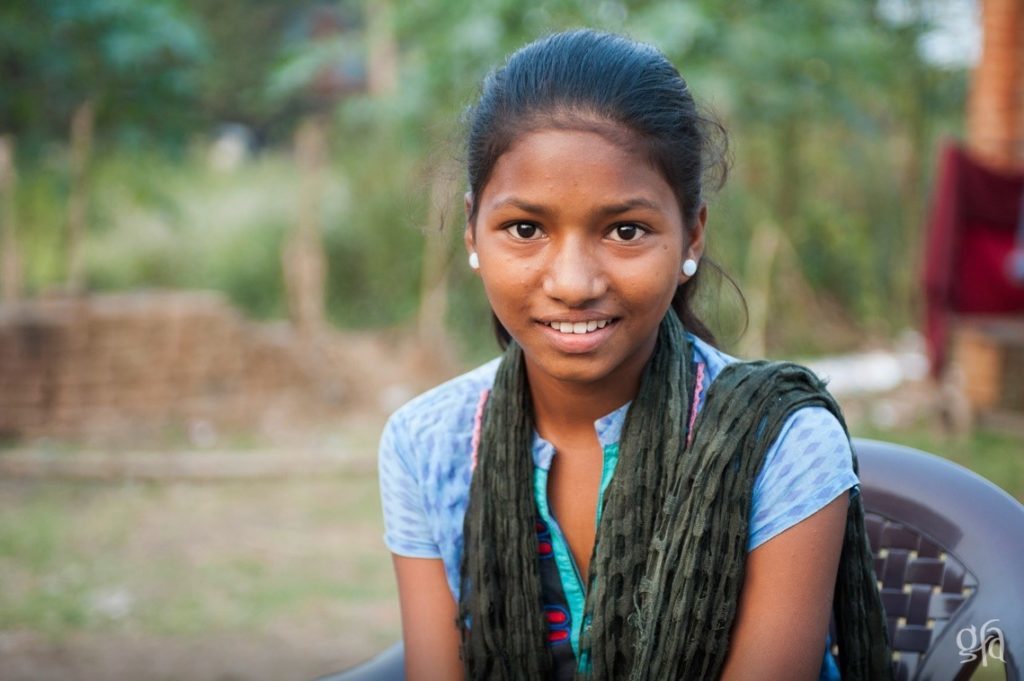ASIA – Gospel for Asia released a special report on “Seeking Justice & Defending Human Rights.” In addition to being available on the ministry’s website, the report was published in three parts on Patheos. The recurring theme of the report was abuse and indignity suffered by women and children, especially those in developing countries in Asia and the larger 10/40 Window.Expanding on that report, we at Missions Box News feel the need to communicate the indignities and injustices women suffer as a result of child marriages. Our purpose is to motivate believers to pray with compassion for the young girls and women who are under the bondage of dowry.
It is important to understand that dowry was made illegal by the Dowry Prohibition Act of 1961 in India and “subsequently by Sections 304B and 498A[9] of the Indian Penal Code. Within the Indian context, dowry is a demand for property or valuable security having an inextricable nexus with the marriage.”
The most important thing about a law is its enforceability. The fact that the laws against the dowry system are not enforced allows crimes against women to continue, ranging from emotional abuse and injury to even death. Perhaps the most horrible of deaths involving forced marriages and dowries are “bride burnings.”
An MBA Rendezvous study says that “bride burning and dowry are [an] integral part…” of some Asian cultures.
Dowries establish a point of leverage by which the husband may continually harass the bride’s family for additional goods or money by threatening to do her harm. When the family fails to pony up, the husband may abuse or kill his defenseless wife. One of the more prevalent methods of dispatching one’s wife is by dousing her with kerosene and setting her on fire.
India Partners reported:
“After marriage, the groom’s family sees the leverage of threatening the girl and asking for more money. So, they will begin threats, they will begin beatings, and the rule of thumb is something like the more money you want, the more you need to beat her.
“The beatings a woman suffers at the hands of the groom’s family can escalate quickly as they demand more money. Dousing the woman with flammable liquid and setting her on fire is an ultimate show of intimidation. It’s not uncommon for these tactics to lead to the woman’s death.”
If killing brides over dowries sounds just a little bit beyond the pale of belief, consider the following headlines culled from several hundred appearing in The Times of India over the past 18 months up to November 25, 2018.
- Six-fold rise in cruelty by in-laws and dowry demands in Gujarat
- Two women murdered over dowry in Bijnor, M’nagar
- Pilibhit: 23-year-old killed for dowry
- 20-year-old thrashed, burnt to death for dowry
- Kolkata: Housewife beaten to death in Bengal over dowry dispute
- Woman burnt alive for dowry in Sambhal
- Murder, rape cases go down, but dowry deaths spike in Noida
- Torture for dowry drives woman to suicide
- Woman made to drink acid 8 months ago succumbs
- Three-month pregnant woman killed for`dowry
- Woman burnt alive for dowry`in Badaun
Nonetheless, Pakistan has the highest percentage of dowry`deaths with nearly twice as many per capita as India. The Daily Times called it “one of the most significant and prevailing problems of Pakistan.”
Consider a few headlines from other parts of South Asia.
- Bangladesh
- Nepal
- Afghanistan
- Afghan child bride tortured to death by husband in revenge killing (This was a`dowry death. The bride was estimated to be between seven and 10 years old.)
- Sri Lanka
The Kashmir Reader posits that “The`dowry system has ruined the lives of many brilliant girls because their parents could not afford to give sufficient`dowry to satisfy their in-laws.”
When Gospel for Asia, India Partners and other ministries in Asia ask for your support, please remember why they plead on behalf of the women and young girls. Demonstrating the love of Jesus by educating and training women and young girls and by empowering their families provides a path of escape to a better future where no`dowry is needed.
An IntraHealth study discovered that “religious leaders had more power than anyone to prevent underage marriages” and arrangement of dowries. This finding is especially encouraging, as we seek to transform one community at a time and help the families in those communities to be embraced by a love that will never fade or fail: The love of Jesus.
To read more news on violence against women on Missions Box, go here.
For more information about this, click here.
Sources:
- IntraHealth, Young India: Investing in Health Workers Could Save Young Girls’ Lives
- Kashmir Reader, The Evil of`Dowry: How Long do the Poor Have to Suffer
- The Times of India, Pilibhit: 23-year-old killed for`dowry
- The Times of India, 20-year-old thrashed, burnt to death for`dowry
- Mission Network News, Bride burnings show how women are still devalued in India today
- MDA Rendezvous, Bride burning and Dowry`are integral part of India
- Wikipedia, Dowry`system in India
- Wikipedia, Dowry`death
- The Daily Times, Dowry: a corroding system of the society
Image Source:
- Gospel for Asia, Photo of the Day





